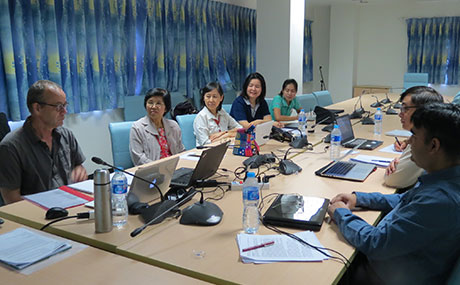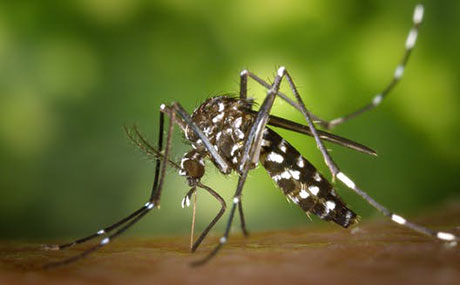 A member of the Baldwin Wallace University public health and prevention science faculty is helping to lead an international research project to investigate how variations in climate are affecting Southeast Asia's susceptibility to deadly mosquito-borne illnesses, particularly dengue fever, the fastest spreading mosquito-borne viral disease in the world.
A member of the Baldwin Wallace University public health and prevention science faculty is helping to lead an international research project to investigate how variations in climate are affecting Southeast Asia's susceptibility to deadly mosquito-borne illnesses, particularly dengue fever, the fastest spreading mosquito-borne viral disease in the world.
BW assistant professor Dr. Ubydul Haque, one of the lead investigators on the $1.26 million grant-funded project, notes that higher temperatures and rainfall affect the mosquito populations that transmit viruses like dengue and Zika. To date, however, no comprehensive model has measured the impact of climate change on the incidence of dengue. The project is funded by the Research Council of Norway.
Haque recently returned from Thailand where he organized logistics to get the research off the ground. The project, which Haque calls his "dream," builds on the previous studies he has conducted on the topic.
"For this phase, we are taking a multidisciplinary approach to data management and analysis, climate exposure mapping, vulnerability mapping, and predictive modeling of future scenarios based on Intergovernmental Panel Climate Projections (IPCC)," Haque says.

"By assessing how these changes affect the risk of dengue fever along the Mekong river in Laos and Thailand, we hope to provide an analysis that helps governments develop effective plans to control the spread of dengue, and possibly other vector-borne diseases like Zika."
IPCC's latest report suggests "Southeast Asia is...one of the most vulnerable regions affected by climate change." According to Haque, "The project is very important because it is expecting to find and develop a novel methodology that can be used to mitigate dengue transmission in particular, and arboviruses in general, during drought, non-seasonal torrential rainfall and flooding. This study will also measure the true impact of climate variability changes on dengue transmission."
To complete the project, Hague will supervise two Ph.D. students enrolled in Norwegian University of Life Sciences and the Asian Institute of Technology to be part of the research team. "I expect the Ph.D. students will spend six months here at BW to work with me," Haque explains. "There will also be opportunities for BW's public health students to do similar work in Thailand this summer."
The dengue project was one of 89 proposals received by the Research Council of Norway in answer to the funder's call for research into the impacts of climate change.